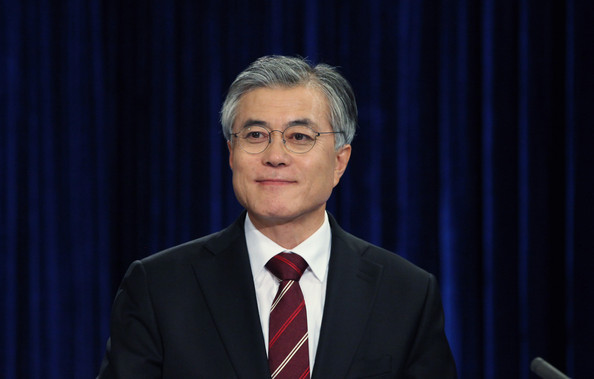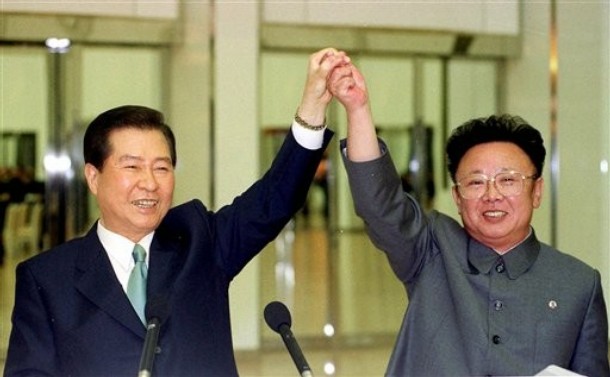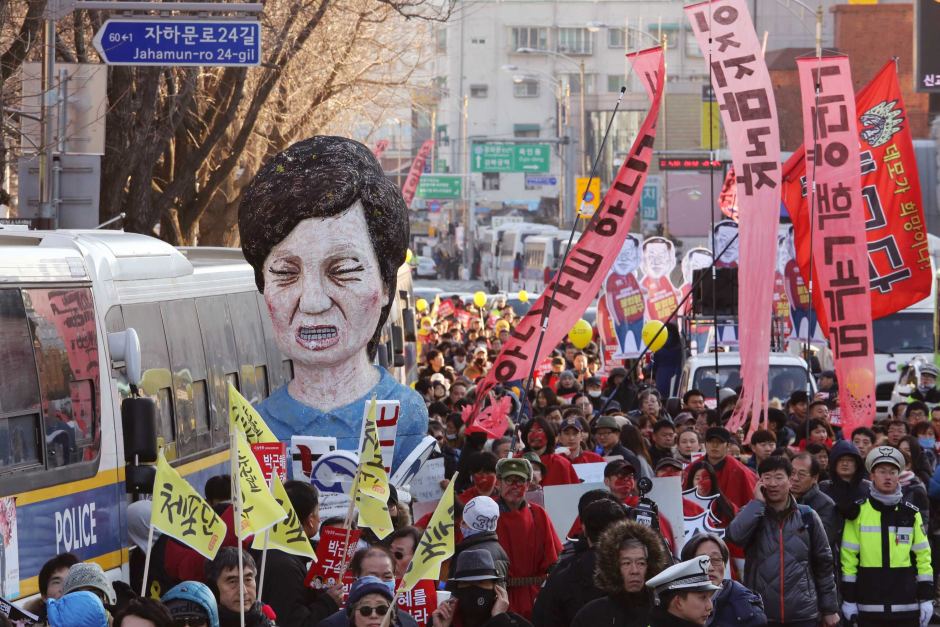As 2016 was coming to a close, media outlets around the globe displayed images of hundreds of thousands of protestors converging on downtown Seoul, the capital of South Korea. They took to the streets in droves to demand that President Park Geun-Hye, who in 2012 became the country’s first female leader, step down in the face of a scandal involving herself, some of Korea’s largest chaebol (large companies) and her friend Choi Soon-sil. Park, who had been friends with Choi ever since her father and former President of South Korea Park Chung-hee was assassinated in 1979, was accused of allowing Choi to not only have access to top secret documents but also dictate everything from what Park wore to what she said in speeches. To top it off, Choi, allegedly with Park’s help, used her close ties to the president to extract and place tens of millions of dollars in donations from South Korea’s top chaebol (such as Samsung and Hyundai) into her own foundations. While Park apologized and denied any wrongdoing, her approval rating fell to a mere 5 percent and the country’s parliament voted “overwhelmingly” to impeach Park in early December. Her presidential duties were suspended and handed to South Korea’s Prime Minister, Hwang Kyo-ahn, until the Constitutional Court could convene and decide whether or not to uphold the impeachment. When the court met to issue a decision on the impeachment on March 10, it ruled in an 8-0 unanimous decision that the impeachment would be upheld and that Park would be immediately removed from office, thus enabling prosecutors to formally charge her with crimes. By South Korean law, an election to replace Park was to be held within 60 days of the Constitutional Court’s decision and the date was set as May 9, with campaigning set to begin on April 17.

Source: AP
Now that the dust has settled and months of political paralysis have ended with the dismissal of Park, South Koreans are turning their attention to the election, one which could have major implications for the region. Due to Park’s downfall, conservative parties are the underdogs in this election despite winning the past two presidential elections. Park’s party, the conservative Saenuri Party, was the ruling party of the country during her tenure but suffered immensely after the scandal was exposed. First, 29 anti-Park members of the Saenuri Party broke off from the party in December in order to form the Bareun Party, a move which cost the Saenuri Party its status as ruling party in the unicameral National Assembly. Second, the party changed its name to the Liberty Korea Party (LKP) in February in the hope that this name change would signal to voters that the party promises to be “born anew” and shake off the Park scandal. Third, despite the election being just over a month away, the LKP has yet to find a competitive candidate to field in the race and is still working on narrowing the number of candidates. Currently the Bareun Party has registered a candidate in the presidential race and the LKP has some notable primary candidates (such as the governor of South Gyeongsang Province Hong Joon-pyo). However, conservative parties in South Korea were dealt serious blows when current acting president Hwang Kyo-ahn and former UN Secretary-General Ban Ki-moon, both expected to run for the presidency as conservative candidates, announced earlier this year that they would not be running in the race after all. As such, it is unlikely that a conservative party’s candidate will end up in the Blue House (the residence of the President of South Korea).
Many analysts have dubbed this election “the liberals’ election to lose” since their top candidate, Moon Jae-in, has little opposition thus far. Moon, the former leader of the liberal Democratic (or Minjoo) Party of Korea, ran in the 2012 presidential election against Park but lost by around one million votes and is now considered the front-runner in this election with polls currently stating that he enjoys around 36.1 percent support among South Korean voters, well ahead of other candidates who currently poll around 10 percent. Currently the Democratic Party (DP) does not have any other candidates who have filed to be a part of the election, and, of the non-independent challengers (excluding Bareun and LPK candidates), three are from the centrist People’s Party, one is from the left-wing Justice Party, and the others are from minor parties who currently have no seats in the National Assembly. There is a possibility that Moon may face a challenge from within in the DP from Ahn Hee-jung, currently governor of South Chungcheong Province, but that will likely not be decided until closer to the start of the campaign in mid-April. While there is no guarantee that Moon will emerge victorious, with one political analyst calling him “too soft” and lacking in “political acumen,” he currently appears to have the best chance of winning.

Source: alchetron.com
With the high likelihood that the next president, Moon or not, will not be as conservative as the last two presidents, many inside and outside of South Korea are beginning to contemplate how the new president may alter South Korea’s policies in two key areas: foreign policy and the economy. Much attention is being paid in particular to South Korea’s relationship with North Korea, China, and the United States. With regards to North Korea, Moon has stated that he sees North Korea as a “partner,” which many believe may hint at the return of the “Sunshine Policy.” This policy was a foreign policy instituted by former President Kim Dae-jung in 1998 that called for short-term reconciliation with North Korea and improving political as well as economic ties. This policy was continued by Kim’s successor and Moon Jae-in’s mentor Roh Moo-hyun, but was stopped by conservative president Lee Myung-bak in 2010 after it was deemed a “failure.” Since then, conservatives like Lee and Park have continuously advocated for being tough on North Korea, with the former refusing talk requests from North Korea at least five times during his tenure and the latter shutting down the Kaesong Industrial Complex, a joint economic venture between North and South Korea, in 2016 as a response to North Korea testing missiles. Some have argued that reconciliation between North and South Korea is needed due to heightened tensions in the region, and the fact that sanctions on North Korea have only hurt average North Koreans and not weakened Kim Jong-un’s grip on power. Quite a few leaders and analysts were taken aback when U.S. Secretary of State Rex Tillerson stated that military action was “on the table” if North Korea did not fall in line soon and cease development of intercontinental ballistic missiles (ICBMs). However, this option has existed for a long time and, despite previous acts of aggression by North Korea occurring during the reign of conservative leaders, such the shelling of Yeonpyeong Island in 2010 which killed 5 to 10 people, neither the U.S. nor South Korea have sought to engage North Korea militarily. Under a liberal leader, it is hard to imagine a situation where the U.S. and South Korea would be willing to start a war with North Korea.

Source: AP Photo/Yonhap, Pool
Simultaneously, many wonder about how a liberal administration in South Korea would affect the relationship between the U.S. and South Korea since the administration of President Donald Trump is quite different ideologically than previous administrations. Ahn Hee-jung, a potential DP candidate for president, has stated that he would like to “reduce dependence” on the U.S. military and engage North Korea diplomatically, two things which had not been done during the terms of both the unabashedly pro-U.S. Lee Myung-bak and Park Geun-hye. However, even if liberals like Moon Jae-in or Ahn ascend to the presidency, they are constrained in a few ways. First, North Korea under Kim Jong-un is different than North Korea under Kim Jong-il was and, with the U.S. threatening military action, South Korea is unlikely to go behind the U.S.’ back to engage in negotiations. Second, the DP was known for criticizing President Park’s decision to deploy the Terminal High Altitude Area Defense (THAAD) system, one that was produced by the U.S. This is an issue because China vigorously opposes its installment and sees it as a security threat, resulting in Chinese state media encouraging its citizens to boycott South Korea, a serious problem since China is South Korea’s biggest export market. At the same time, however, liberals have few options because the THAAD system is already being assembled and, despite Ahn wanting to “reduce” the U.S. military presence in South Korea, the alliance between the U.S. and South Korea will continue to loom over talks.
Additionally, there are questions about how the new president of South Korea would work to alter or revitalize the country’s economy, which has been suffering due to not only the months of uncertainty between Park’s impeachment and removal from office but also things like the extraordinarily high rates of youth unemployment and elderly poverty. Moon Jae-in has pledged to increase the number of public sector jobs, increase disposable incomes, and “get tougher” with the chaebol that dominate the Korean economy, while others have advocated loosening regulations and providing subsidies to smaller companies to increase the number of private sector jobs. As the scandal with former President Park unfolded and it was revealed that chaebol had donated to Park’s friend Choi Soon-sil’s foundations, the cozy and often inappropriate ties between the government and chaebol were once again brought to the forefront of discussion in South Korea. Though long sources of national pride and economic prosperity for South Korea, many are starting to blame the chaebol for not only contributing to corrupt governments, but also stifling innovation and growth by snuffing out smaller competition. Currently South Korea’s GDP is about 46 percent due to the export of goods, consisting of mostly electronics and cars produced by major chaebol like Samsung, LG, Hyundai, and others. Comparably, the U.S. and Japanese GDPs are about 13 and 18 percent exports. This heavy reliance on export goods makes South Korea extremely vulnerable to market forces, with one article pointing out that a mere 10 percent drop in exports would shrink the South Korean economy by 5 percent. Considering the Chinese boycott of the country and the U.S.’ move towards protectionism, the next president will need to find a way to prevent economic collapse should exports fall more than expected while also re-examining South Korea’s relationship with the chaebol – a difficult task for any leader. While there certainly is hope that the next President of South Korea will be able to rectify the past administration’s mistakes and fix the problems with North Korea and chaebol, due to the many issues and constraints the next president will face, there is little reason to believe that life after Park Geun-hye will be seriously different in South Korea.


